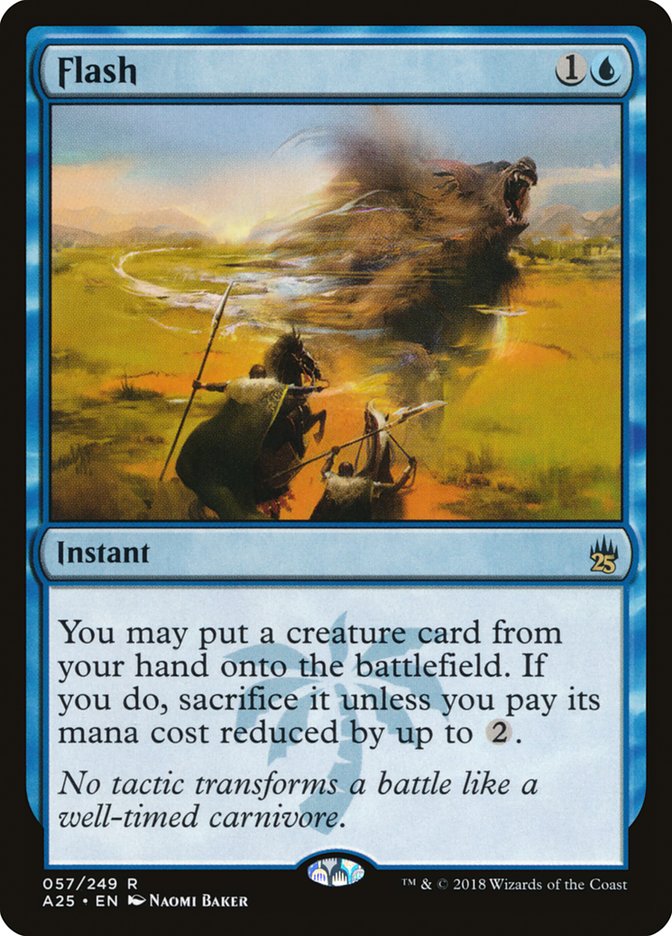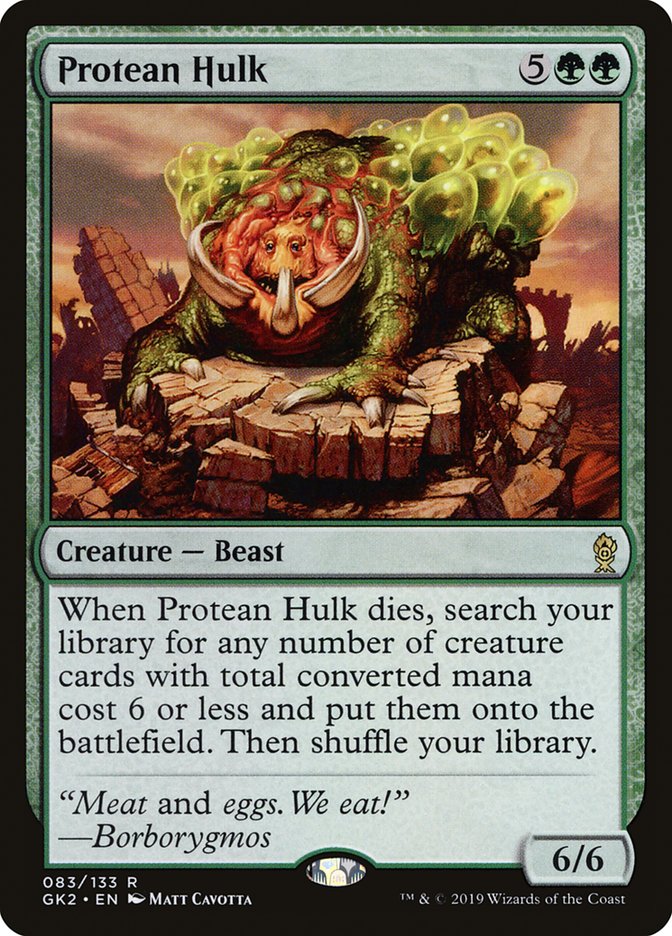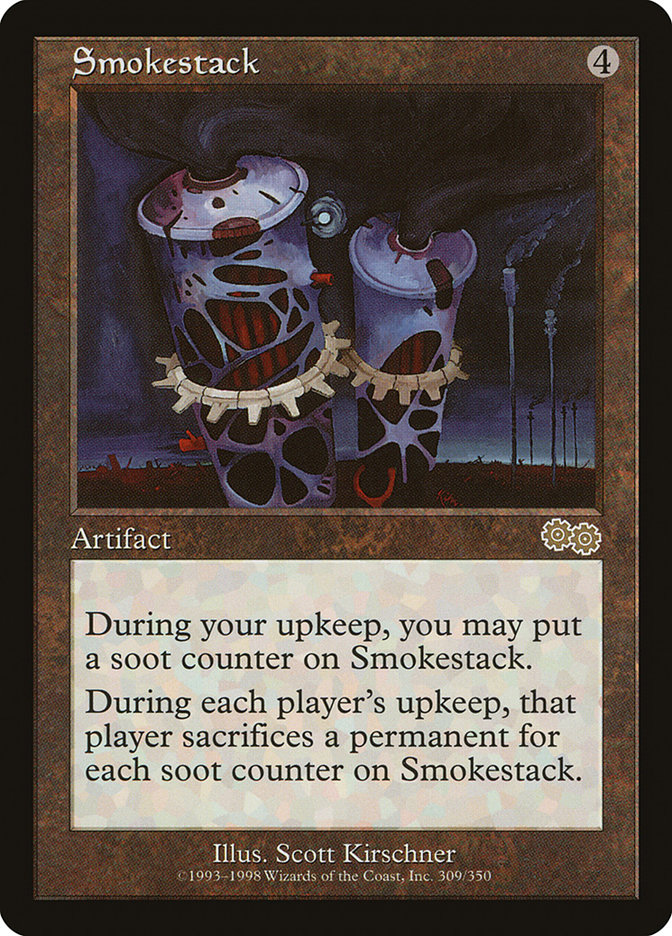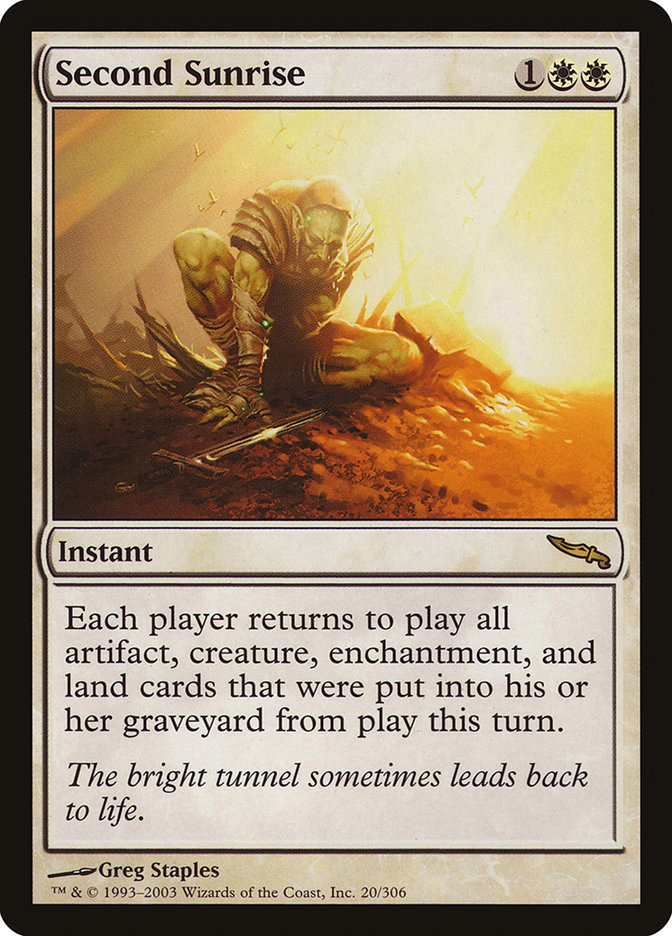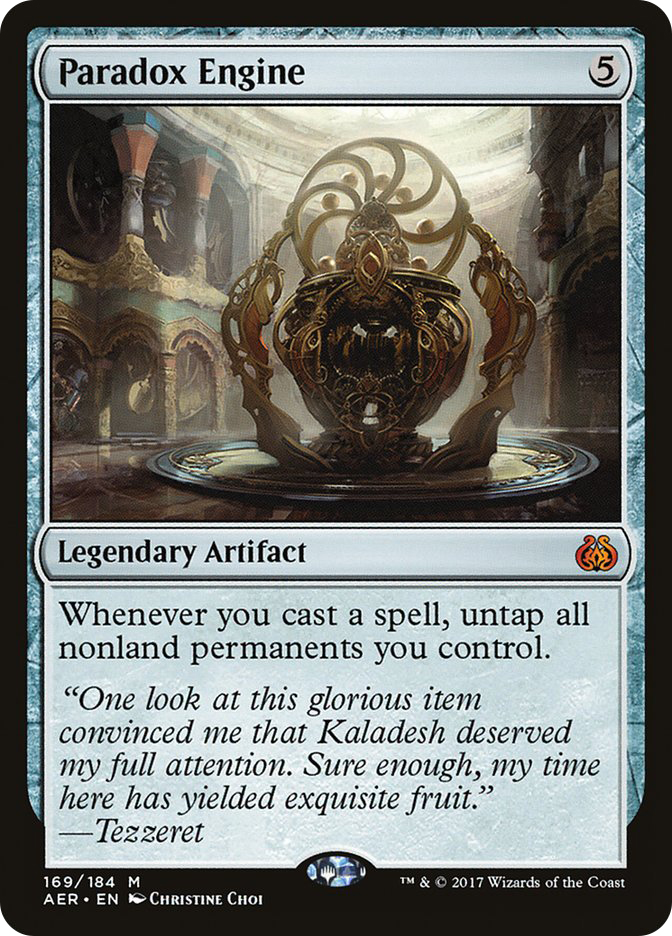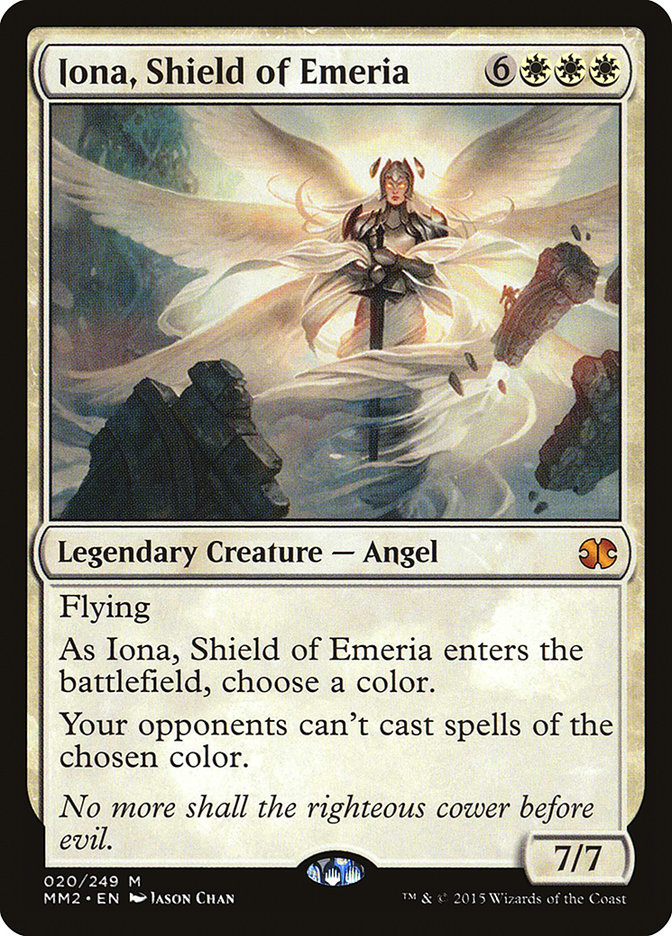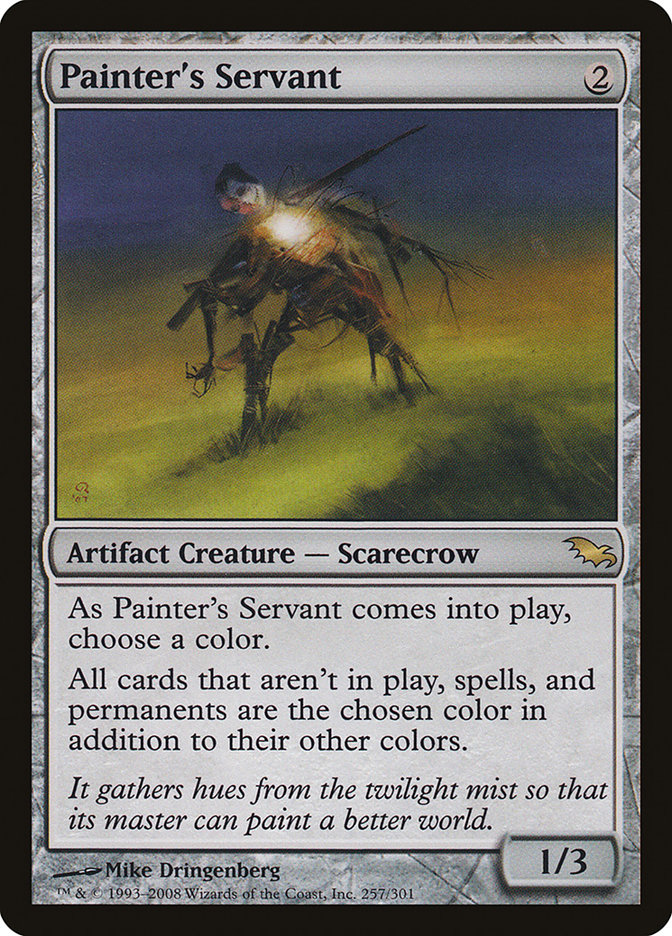No doubt by now you’ve seen the latest Commander Banned List update and some of the uproar and/or relief that it caused. I’d like to take some time to delve more deeply into how we got here. I’d like to take you through the philosophy first and then reflect back to it on the cards that changed spots.
Here’s the Philosophy Document so you don’t have to go look for it (but if you want to, it’s on the official forums). I’ll chat a little about what follows.
The Philosophy of Commander
Commander is for fun. It’s a socially interactive, multiplayer Magic: the Gathering format full of wild interactions and epic plays, specifically designed as an alternative to tournament Magic. As is fitting for a format in which you choose an avatar to lead your forces into battle, Commander focuses on a resonant experience. Each game is a journey the players share, relying on a social contract in which each player is considerate of the experiences of everyone involved–this promotes player interaction, inter-game variance, a variety of play styles, and a positive communal atmosphere. At the end of an ideal Commander game, someone will have won, but all participants will have had the opportunity to express themselves through their deck building and game play.
I’m sure the first thing you noticed is the bold-faced text. If you just jump between all of them in the document, you’ll get the Commander elevator pitch. They’re the absolutely critical points. It’s important that this paragraph is first, because it’s the answer to “What is Commander and why does it exist?” The first thing we did when we wrote the document was ask ourselves that very question, which is how we got to the relatively tight paragraph above.
We get that Commander is different. Hell, we intended for Commander to be different, so the rules which might apply to other formats don’t necessarily do so here. The biggest difference is that it’s the only format with a philosophy. I think that bears repeating. It’s the only format with a philosophy. We spell out what we’re hoping to create with the format, and every single one of those words matters.
The rules of Commander are designed to maximize these experiences within a game of Magic. The addition of a commander, larger life total, and deck building restrictions emphasize the format’s flavor; they increase deck variance and add more opportunities for participation and expression.
While still being recognizable as Magic, there are additional pieces to Commander which tell a story, offering you the opportunity to bring your Dune-themed deck or Pirate tribal and have it play. Many players see a game of Magic—and especially a Magic tournament—as a math puzzle to be solved. Commander adds a creative element on top of that which partners with the math to create something unlike any other experience.
The goal of the ban list is similar; it does not seek to regulate competitive play or power level, which are decisions best left to individual play groups. The ban list seeks to demonstrate which cards threaten the positive player experience at the core of the format or prevent players from reasonable self-expression. The primary focus of the list is on cards which are problematic because of their extreme consistency, ubiquity, and/or ability to restrict others’ opportunities.
The most important sentence there is about not trying to regulate competitive play. It’s one that some folks don’t understand or can’t find resonance with, which I can appreciate. In any game, there’s a natural mindset to optimize game element interaction. We’re doing something radically different here. Competitive balance is not our mission. If cards are only used in cEDH decks, even for the most degenerate purposes, we’re not going to ban them. We talk a good deal about our core demographic, the people for whom the philosophy document does resonate, the audience we’re trying to reach. We focus on what their games look like and how certain card or sets of cards might impact them. We get that Flash/Hulk is a cEDH staple and easy/early win condition. The core demographic isn’t playing it. They might be playing Protean Hulk for value or even some wonky combo engine, but they’re not comboing out on Turn 1.
It bears repeating that, in the abstract, we believe in the validity of all play styles, from the fastest combos to the longest durdle-fests, from STAX locks to swinging armies into the Red Zone. There’s no moral component or ethical value to a play style (unless that play style is cheating, I suppose). That doesn’t mean the RC focuses on all of them equally or that we believe equal representation of all of them is what Commander wants to do, which is a departure from other formats. There’s a great line from The West Wing that captures the essence of what I’m getting at: “I know that when life expectancy goes up, we’re not victimizing undertakers.” What the RC wants to do is increase life expectancy, as it were.
Some people think that we on the RC don’t like competitive Magic. We love competitive Magic. Everyone on the RC has made their bones in competitive Magic. It’s just not what we’re doing here. We’re not taking a stand against any particular style; we’re focusing on the things that we want the format to do. We’re carving out an underserved space, giving voice to a contingent of people whose voices get drowned out elsewhere. There are already a bunch of great competitive Magic formats to play. Commander doesn’t want to be one of them—not because they don’t have value, but because there’s nothing else like it.
We spell out specifically the baseline style of game that we hope to craft and what we’d like to avoid. If that baseline doesn’t suit your local group, we encourage you to change it. When you go outside your local group, you can trust the baseline will be there. Even then, there’s Rule 0.
No single rule can establish criteria for a ban; there are many mitigating or exacerbating factors. Some cards will represent an extreme on a single axis; others are a confluence of multiple smaller issues. The following list isn’t exhaustive, nor is it a checklist, but it represents ways in which cards challenge the positive experiences players look for in commander games. It includes cards which easily or excessively
- Cause severe resource imbalances.
- Allow players to win out of nowhere.
- Prevent players from contributing to the game in a meaningful way.
- Cause other players to feel they must play certain cards, even though they are also problematic.
- Are very difficult for other players to interact with, especially if doing so requires dedicated, narrow responses when deck-building.
- Interact poorly with the multiplayer nature of the format or the specific rules of Commander.
- Lead to repetitive game play.
Cards which are banned likely meet a few of these criteria in a significant way; not all cards which meet some of the criteria need to banned.
There’s a great deal to say about the previous paragraph and bullets. We did away with hard categories for banning cards because they led to a great deal of misinterpretation. People thought it was indeed a checklist. The algebra for what merits a Commander ban is simply different—intentionally so—than for other formats; in fact, it’s less like algebra and more like interpretive dance.
Still, we want to make sure folks understand the kinds of things which get cards banned. The most significant to me is the third bullet, preventing players from contributing to the game in a meaningful way. While there is some joy to being able to work yourself out of the puzzle of a lock (personally, I don’t mind it every now and again, even if it’s not the way I’d choose to play all the time), for many players not being able to play is just a miserable experience. Also, just watching someone else take a twenty-minute turn isn’t all that much fun either. We know that we can’t prevent every bad experience that a player might have, but we can make an effort to minimize them, within certain constraints.
The other bullet I want to call out is the one about making players believe that they have to play certain cards. We want to avoid “must play” cards in certain colors or color combinations from both sides of the equation. If there’s a card that you must either always play or always be prepared to play against, it’s a good candidate for banning. Are there optimal cards in certain decks? Of course. We want to create an environment in which you don’t necessarily have to play them (another point that some folks think is silly, which they’re entitled to). Part of that is achieved by crafting the ban list. The other part is by cultivating the culture which is open to and supports a broad swath of deck types and card choices.
We prefer to be conservative with what goes on or comes off the ban list. Commander players often become emotionally attached to their decks through play and personalization, and we value that experience highly. We only want to disrupt that bond when necessary.
One of those constraints is wanting the list of banned cards to be as lean as possible. We don’t like banning cards. Really. Don’t like it at all. One of the draws to Commander that I’ve heard repeatedly over the years is that it’s the only format in which folks can play cards which are old favorites. Some cards, whether they’ve rotated out or are just too janky, don’t have a home in other formats. Commander wants to open its doors to them and make them welcome so long as they’re not upending the experience we’re trying to create. Still, for the format to be healthy, some things have to go. We play with a Vintage-based card pool, but letting the format become alt-Vintage would destroy its identity and in the end destroy it.
Commander is designed to be a malleable format. We encourage groups to use the rules and the ban list as a baseline to optimize their own experience. This is not license for an individual to force their vision onto a play group, but encouragement for players to discuss their goals and how the rules might be adjusted to suit those goals. The format can be broken; we believe games are more fun if you don’t.
In order to unbreak the format and still keep its identity, we’d have to ban quite a few cards, which we really don’t want to do. A 100-card ban list is good for no one, not the people who have to maintain it or the people who have to remember what’s on it. That means there might be cards which seem like they might want to be on it, but aren’t. If a card is borderline, we prefer to leave it off.
The sound bite I’ve used for a long time is “the secret to this format is in not breaking it,” which I believe fellow RC member Toby Elliott said more than a decade ago and I picked up on. If we don’t want an onerous ban list, then encouraging social guidance of the environment is the way to go. This is another element of the format which simply doesn’t click with a few people. We can’t stop you from playing any of the multitude of busted combos which are available. What we can do is encourage you to think about the experiences of the players around you and guide you toward an idea, like those busted combos are okay on Turn 10 but not so much on Turn 3. We can also encourage an environment in which it’s okay for players to say “No, I’d prefer to not play a particular way.” Again, we’re focusing on the underserved group.
The idea we’d really like to offer you and have you give a great deal of consideration is that there are more ways to win at Commander than just beating the other three players at the table.
Banned and Unbanned
The official announcement has our reasons for the bans and unbans. I’ll add a few comments.
Paradox Engine is a card that has proven to be intensely problematic. Not only does it provide easy wins seemingly out of nowhere, it has demonstrated the potential to unintentionally wreck games. Easily inserted into any deck, it combines with cards which players already have heavy incentives to play, generating a great deal of mana with virtually no deck building cost. While we don’t ban cards which are only problematic if you build around them, Paradox Engine has clearly demonstrated that it doesn’t need to be built around to be broken.
Even on casual tables, Paradox Engine defined “problematic” and “ubiquitous.” It had become a card you had to play or play against. It had become more than just a value engine, but a centralizing card. One of the other things it did was create a resource imbalance in more than just mana, but in time. It’s a card that led to one player monopolizing the clock, which is another experience we’d like to discourage. We want players to do cool stuff, to assemble their wacky machines, and have their moment in the sun. Paradox Engine isn’t wacky at all, but an efficient, soul-draining, grindy construct, which we feel the format is better without.
Iona, Shield of Emeria creates a negative experience for many players without the benefit of a positive application. We had previously considered its high mana cost sufficient to keep it from getting played, but deeper investigation demonstrated many ways of getting it onto the battlefield without paying that cost. Iona, Shield of Emeria is also an exemplar as the type of card which creates an experience we wish to discourage, namely shutting players out of games.
No one ever saw an Iona hit the battlefield and said, “Hey, that’s pretty cool.” Sure, there’s that time when someone got out of a seemingly impossible Iona lock, but that doesn’t make up for all the times the card made them stop playing. For many players, it’s the ultimate feel-bad card. We can’t get rid of every card which creates bad feels, but we can hope that by holding up one of them, players will take it as an example of the kind of card you want to think really hard about before playing. Some of the heartburn that players have already expressed about this ban is that there are worse cards (really, combinations of cards) which should have been banned before Iona. It’s an understandable position. For us, Iona was a one-card answer to eliminating experiences that we’d prefer players not have.
Painter’s Servant is a card that’s been discussed for a long time and it’s time to take off the shackles. We feel as though there are now more weird and fun uses for the card than there are dangerous ones. The card will provide deck builders with some additional paths to explore in expressing their creativity.
We get that there are danger points with Painter’s Servant, although they’re not any more dangerous than some of the other things already available—which was the thought path that got us to the unban. There will be some outliers that build Painter’s Servant / Grindstone, but we don’t see that as the majority option. The CAG did a great job of helping us see the upside value of Painter’s Servant. They made the argument that some players have made about it over the years in a quite compelling fashion—which is exactly what we had hoped they’d do when we formed them.
On a side note, please don’t lay any blame for a decision you don’t like on the CAG. They are trusted advisors. The RC still makes the decisions, so if you want to yell as someone, that’s still us. And we always hope that you’ll engage in spirited and polite debate instead of yelling. Anyway, we’re looking forward to all the cool things you can do with Painter’s Servant.
My final comment is on the seeming “swap” of Iona and Painter’s Servant, which is a thing many folks have suggested for years. It really wasn’t done that way; in fact, several of the RC/CAG wanted to make sure that we weren’t doing it that way, but evaluating each card on its own. There’s a spreadsheet of the cards we’re going to discuss, with everyone making notes and general early thoughts, which is shared with all ten of us before the meeting starts, meaning Painter’s Servant was already on the docket. The way the process works is that we discuss bans first and then unbans. Banning Iona didn’t hurt Painter’s Servant’s case, but it wasn’t the impetus for it being there in the first place.
We understand that any time we ban or unban anything, not everyone will like it. There’s no way to make everyone happy with all things. We can point to the philosophy and say “This is why we made the decision,” and hope that people trust that we truly are operating in the best interest of making the format the best it can be on its own terms.
Sheldon Menery’s Deck Database
Check out our comprehensive Deck List Database! Click each section for lists of all my decks.
Signature Decks
These are the decks that define my personal play style to the greatest degree and to some extent lay the original foundation of the format. They’re also the ones you’re most likely to see me bringing along to spell-sling at an event.
The Chromatic Project
The Chromatic Project started as an effort to build at least one deck of all 27 possible color combinations, which was expanded to 32 when we finally got four color commanders. There’s more than one of some combinations, mostly because I have a Temur problem, plus some partner combinations are too enticing to pass up.
Mono-Color
Guilds
Shards and Wedges
Four Color
Five-Color
Partners
The Do-Over Project
The Do-Over Project is the next step after the Chromatic—building a deck with each of the same Commanders, but not repeating any cards save for basic lands (props to Abe Sargent’s “Next 99” idea). The Do-Over Project is still ongoing because we keep getting saucy new sets with creative and colorful commanders to build new decks with.
If you’d like to follow the adventures of my Monday Night RPG group (in a campaign that’s been alive since 1987) which is just beginning the saga The Lost Cities of Nevinor, ask for an invitation to the Facebook group “Sheldon Menery’s Monday Night Gamers.”


